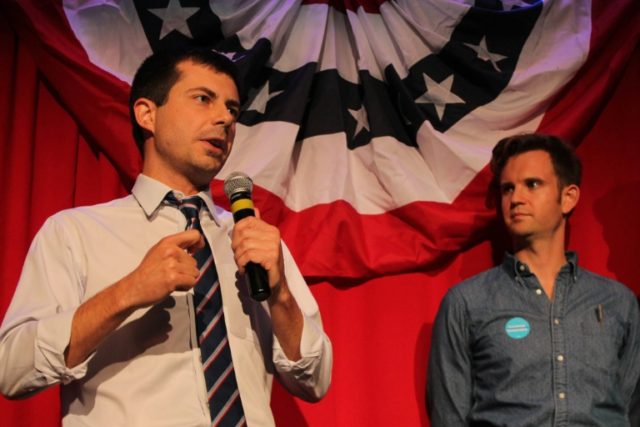Appearing on Pod Save America with Dan Pfeiffer this week, former Fort Bend mayor and 2020 Democrat presidential candidate Pete Buttigieg critiqued the messaging behind the Green New Deal, suggesting advocates avoid discussing “farting cows.”
A partial transcript is as follows:
DAN PFEIFFER: So, you know, you talk about climate change. And I think it’s a very compelling part of your message and an argument for someone who’s going to have to live on this planet. You’d like it to be here long after some other folks won’t. So a couple questions on that fact. What is your reaction to the Green New Deal proposal put out by Alexandria Ocasio-Cortez and Ed Markey.
PETE BUTTIGIEG: So here’s what I think the Green New Deal gets right and why I think it’s good that it’s been put forward. There’s two really important pillars to this, I think. The first is it correctly situates this as a major national emergency. It identifies this as a problem whose destructive powers is comparable to a Great Depression or World War except this time we see it coming. So, shame on us if we don’t do something. And that’s how I view it, right? As a mayor, and frankly in the political process, part of what I’m trying to do is just change the mental B-roll that people have when we say a word like climate and get it away from, you know, hunks of ice breaking off the Antarctic and polar bears and move what your mind’s eye pictures to things like parts of California catching on fire or my own city, where we had, you know, twice I’ve had to activate the emergency operations center of our city for a flood, for a historic flood. One of them was a 500-year flood. And one of them was a thousand-year flood and they happened 18 months apart.
So, this is an emergency of world-historic proportions. And the Green New Deal gets that. The second thing it gets, and the reason the New Deal metaphor is kind of elegant, is it shows this idea that there’s also economic opportunity from rising to meet that challenge. So, you know, part of how we ended the Great Depression was mobilizing to deal with World War II. But it shouldn’t take a war to mount that kind of national effort. So look, I get that it’s ultimately right now, is more of a set of goals than it is an actual plan, right. And we haven’t figured out some of the things that it would take to meet those goals. But for those who are saying, you know, is 2030 the right year or not to achieve some of these things, I mean the answer is, that’s not up to us. Like that’s pretty much in the science. The answer isn’t can we, it’s we have to. And then we figure it out. By the way, America has a great tradition of figuring out how to do things, from ending the Great Depression to beating Hitler to going to the moon. And I don’t know why this can’t be taken seriously at that level.
PFEIFFER: Do you have political concern about it? You’re from Indiana, conservative state. Trump won it by 19 points. You have Trump out every day and Republicans saying that the Green New Deal is going to end plane travel, we’re going to take your car away, we’re gonna get rid of cows. Is there any political concerns or, so do you have political concerns about it or is there anything, you said here’s what it gets right. Are there things the Green New Deal gets wrong?
BUTTIGIEG: Yeah I mean it’s vulnerable to being caricatured and again this is very similar. I mean you know the elimination of cows is very similar to, you know, death panels. It’s these things that are being thrown out there and what we need to do is concretize this and talk about what’s actually happening. I enjoy going down to get a cheeseburger in South Bend. I just want to not have the city flooded while I’m on my way there, right. And there’s a common sense way of talking about this that I think people regardless of ideology, at least most people, can get. You know it’s not written in stone that the middle of the country has to be conservative. I mean much of the best American progressive tradition comes from the middle of the country.
It goes all the way to back to John Brown in Kansas. You can think about William Jennings Bryan from the middle of the country. Eugene Debs, outright socialist from Indiana. So it’s not that a certain part of the country has to be right or has to be left, it’s that we have to explain these things in terms that remind everybody what’s at stake. I would argue that in agricultural areas, you know my part of the country we’ve got a lot of corn and soy. We have a whole lot at stake in these issues and we need to have the vocabulary and the argument be about that, not about farting cows.
[H/T Pod Save America]

COMMENTS
Please let us know if you're having issues with commenting.